Richard Osborne Quotes & Sayings
Enjoy the top 6 famous quotes, sayings and quotations by Richard Osborne.
Famous Quotes By Richard Osborne
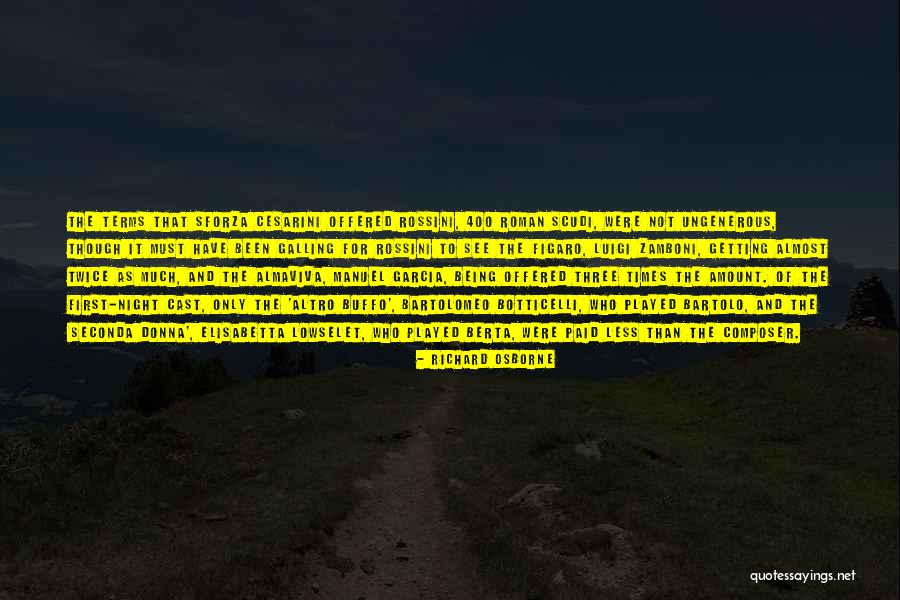
The terms that Sforza Cesarini offered Rossini, 400 Roman Scudi, were not ungenerous, though it must have been galling for Rossini to see the Figaro, Luigi Zamboni, getting almost twice as much, and the Almaviva, Manuel Garcia, being offered three times the amount. Of the first-night cast, only the 'altro buffo', Bartolomeo Botticelli, who played Bartolo, and the 'seconda donna', Elisabetta Lowselet, who played Berta, were paid less than the composer. — Richard Osborne
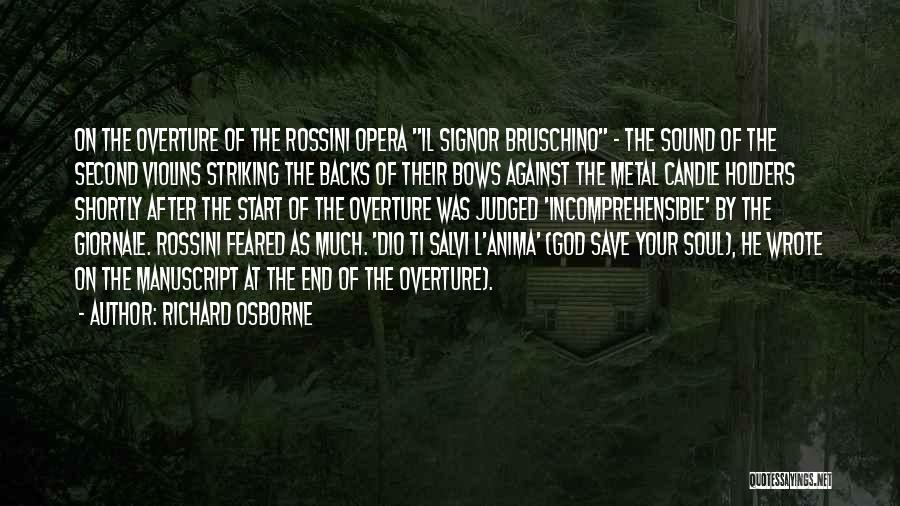
On the Overture of the Rossini opera "Il SIgnor Bruschino" - The sound of the second violins striking the backs of their bows against the metal candle holders shortly after the start of the overture was judged 'incomprehensible' by the Giornale. Rossini feared as much. 'Dio ti salvi l'anima' (God save your soul), he wrote on the manuscript at the end of the overture). — Richard Osborne
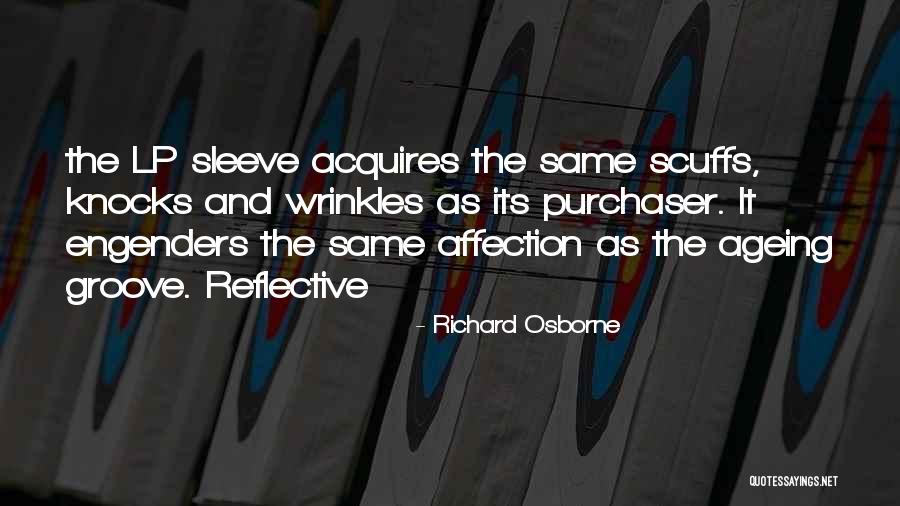
the LP sleeve acquires the same scuffs, knocks and wrinkles as its purchaser. It engenders the same affection as the ageing groove. Reflective — Richard Osborne
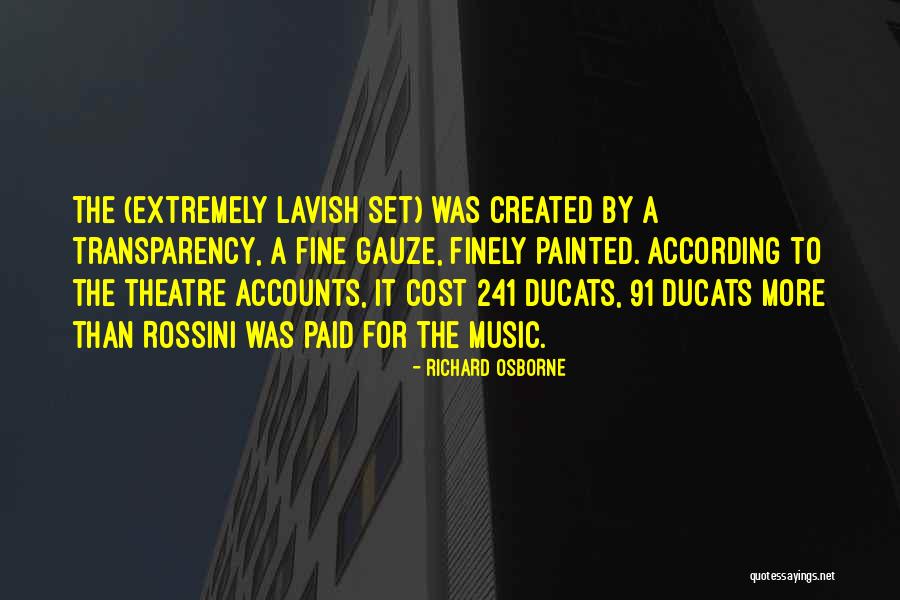
The (extremely lavish set) was created by a transparency, a fine gauze, finely painted. According to the theatre accounts, it cost 241 ducats, 91 ducats more than Rossini was paid for the music. — Richard Osborne
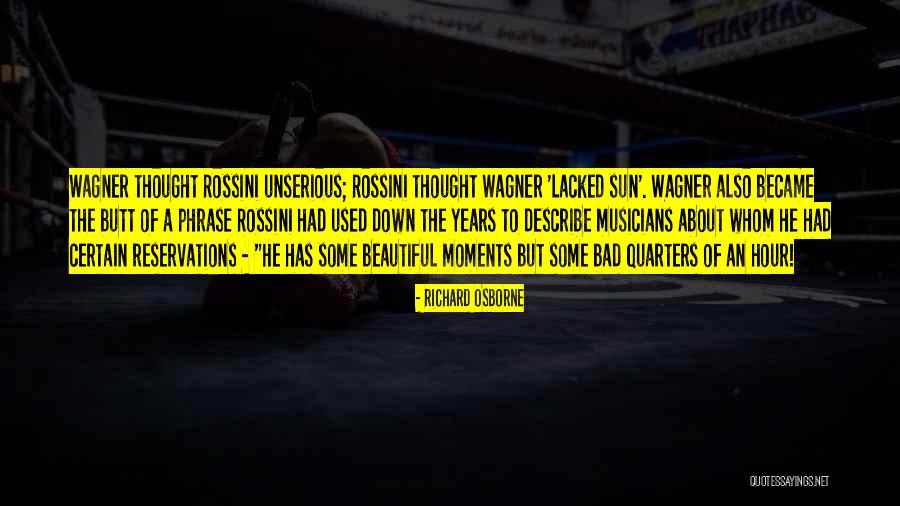
Wagner thought Rossini unserious; Rossini thought Wagner 'lacked sun'. Wagner also became the butt of a phrase Rossini had used down the years to describe musicians about whom he had certain reservations - "He has some beautiful moments but some bad quarters of an hour! — Richard Osborne
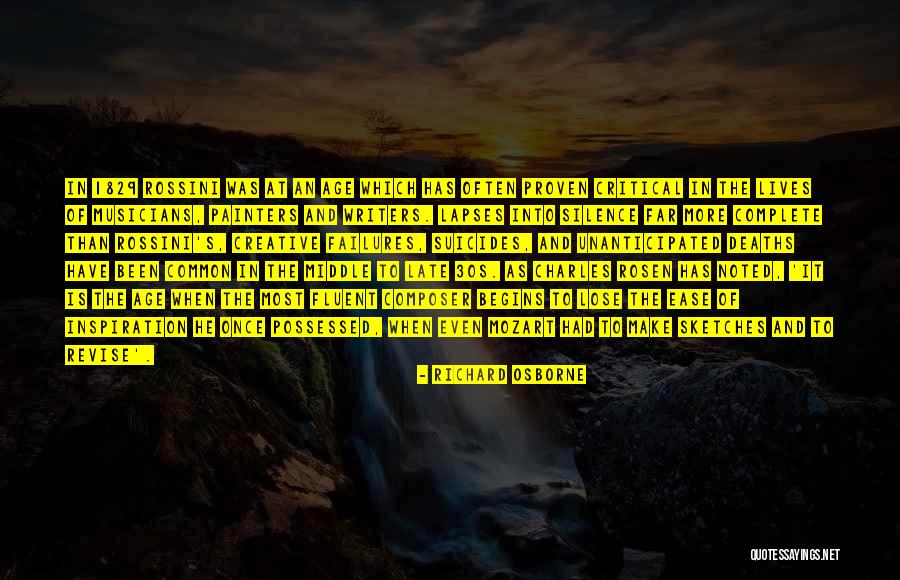
In 1829 Rossini was at an age which has often proven critical in the lives of musicians, painters and writers. Lapses into silence far more complete than Rossini's, creative failures, suicides, and unanticipated deaths have been common in the middle to late 30s. As Charles Rosen has noted, 'It is the age when the most fluent composer begins to lose the ease of inspiration he once possessed, when even Mozart had to make sketches and to revise'. — Richard Osborne





